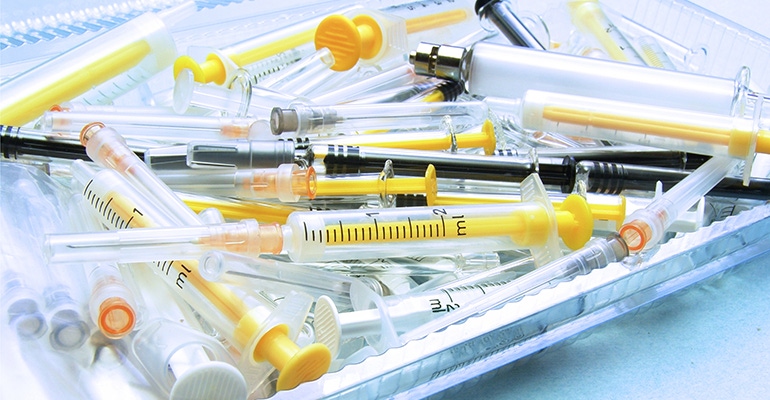The Partner for Change Award recognizes health care facilities that continuously improve and expand upon programs to eliminate mercury, reduce and recycle waste, source products sustainably and more.

The U.S. Environmental Protection Agency estimates hospitals produce an average 29 pounds per day per bed. The types of waste generated at these medical facilities vary from food and solid waste, to hazardous and medical waste including sharps and needles, to recyclables like paper and cardboard. Managing this dynamic waste stream can be a challenge.
St. John's Medical Center, located in Jackson, Wy., which offers health and wellness services through a full-service hospital, primary care and specialty physician practices and a long-term care living center, is looking at its waste and at ways to reduce it.
Recently, in recognition of its programs that reduce environmental impact, St. John’s Medical Center received the Partner for Change Award from Practice Greenhealth, the nation’s leading organization dedicated to environmental sustainability in health care. The award is one of the Environmental Excellence Awards given each year to honor environmental achievements in the health care sector.
The Partner for Change Award recognizes health care facilities that continuously improve and expand upon programs to eliminate mercury, reduce and recycle waste, source products sustainably and more.
“This award is a testament to the work that the sustainability committee has undertaken for the past 30 years, and buy-in from the CEO, the board, and our employees,” Lisa Smith, sustainability coordinator at St. John’s, said in a statement. “We take pride in our sustainability programs and the positive impacts they have on the environment and the community we serve. We look forward to continuing to grow and expand our programs.”
Winning facilities recycle at least 15 percent of their total waste, have reduced regulated medical waste, are on track to eliminate mercury and have developed successful sustainability programs in many areas.
Highlights of the medical center’s sustainability program include campus-wide recycling, healthful food promotions and more efficient water and energy use. The focus on sustainable foods include serving antibiotic- and hormone-free, grass-fed beef and bison. Healthy food options, like the salad bar, are now more affordable. Bottled water has been replaced by filtered water stations throughout the campus.
Sustainability efforts include recycling 107 tons of materials in calendar year 2016, including paper, plastic, glass, batteries, cans, cardboard. The facility says it strives to meet or exceed all environmental laws and regulations. With respect to recycling, the center supports and encourages recycling of materials used within the hospital and minimizes waste, through purchasing products containing recyclable or reusable materials whenever possible.
St. John’s also has a sustainability committee that helps plan sustainability programs and events, including medication take-backs that allow community members to bring unneeded or expired medications to St. John’s for proper disposal. The Medication Take Back program is supported by St. John’s Medical Center pharmacy and Teton County law enforcement.
Additionally, the medical center’s partnership with Teton County Integrated Solid Waste and Recycling as an RRR (Reduce, Reuse, Recycle) Business Leader, has saved thousands of dollars in e-waste recycling in 2017 to date.
About the Author(s)
You May Also Like


